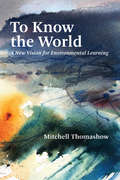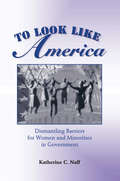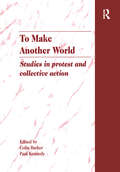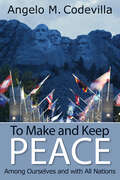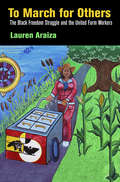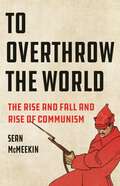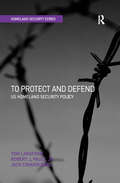- Table View
- List View
To Kill or Not to Kill: Euthanasia in a Society with a Cultural Death Wish
by John FlemingEuthanasia emerged as a talking point for progressives and secularists in the West in the 1960s. Given that they simply appropriated (without anyone’s permission) control of national and private broadcasters, newspapers and university faculties, it became, eo ipso, a matter of public controversy. Other modish enthusiasms of that period – sexual licentiousness and psychotropic drugs for example – have long been abandoned, but the quest for legislative sanctioning of the killing of the old and infirm and distressed never abated; not a parliamentary year passed in one of the Australian States, it seemed, or even at Commonwealth level, but another bill was placed on the notice paper. Well, in the states of Victoria and Western Australia, that bill is now an act as it is in Canada, various states in the USA, The Netherlands, Belgium and other nation states. It has remained an Article of Faith for the left throughout all of the decades of post-modernity – just like that other form of authorised killing: abortion. Why is this? What is it about these issues that evoke in the minds and imaginations of liberals and leftists an almost millenarian enthusiasm? It required a scholar of Father Fleming’s insight and experience to provide us with the explanation, in this, the latest and, in my view, most important of his publications. His answer takes us to a close examination of the real legacy of the enlightenment, and it is not the benign and rational one that generations of us have been taught to believe in our schools. His careful unravelling of the three centuries of the secular project from Rousseau to Safe-Schools can leave us in no doubt as to what comes next if we don’t stand up for the Christian inheritance of our institutes. It was always about power. And power always ends up being about persecution. Father Fleming has been a priest, a broadcaster, a controversialist and a scholar in his long and distinguished journey through public life. His book will be essential reading for the many Christian folk of all denominations who now understand that our age will be one that will call upon them to be soldiers as well as servants for the church. – Stuart H Lindsay, barrister and former federal circuit court judge
To Kill the King: Post-Traditional Governance and Bureaucracy
by David John FarmerTo Kill the King sketches post-traditional consciousness in terms of three rejuvenating concepts - thinking as play, justice as seeking, and practice as art. In a series of critical essays on each of these concepts, the book describes a post-traditional consciousness of governance that can yield enormous improvement in the quality of life for each individual. To Kill the King will appeal to any professor (whether in the post-modern camp or not) who wants to expose students to fresh challenges and insights.
To Kill the Truth: The explosive follow-up to To Kill the President
by Sam BourneTHE NEW BLOCKBUSTER THRILLER FROM THE AUTHOR OF THE EXPLOSIVE BESTSELLER TO KILL THE PRESIDENT'Riveting' Sunday Times, Thriller of the Month'Propulsive' Guardian'Provocative' Mail on Sunday Someone is rewriting history . . . One death at a time. Historians and Holocaust survivors dead in mysterious circumstances. Museums and libraries burning across the world. Digital records and irreplaceable proof, lost for ever.Former White House operative Maggie Costello has sworn off politics. But when a newly-elected Governor seeks her help to stop the lethal spiral of killings, she knows that this is bigger than any political game. But who stands to gain most from the chaos?A thriller for our times, To Kill the Truth takes the era of 'fake news' to its terrifying logical conclusion - with explosive results.
To Kill the Truth: an explosive political thriller
by Sam BourneTHE BLOCKBUSTER THRILLER FROM THE AUTHOR OF THE EXPLOSIVE BESTSELLER TO KILL THE PRESIDENT'Riveting' Sunday Times, Thriller of the Month'Propulsive' Guardian'Provocative' Mail on Sunday Someone is rewriting history . . . One death at a time. Historians and Holocaust survivors dead in mysterious circumstances. Museums and libraries burning across the world. Digital records and irreplaceable proof, lost for ever.Former White House operative Maggie Costello has sworn off politics. But when a newly-elected Governor seeks her help to stop the lethal spiral of killings, she knows that this is bigger than any political game. But who stands to gain most from the chaos?A thriller for our times, To Kill the Truth takes the era of 'fake news' to its terrifying logical conclusion - with explosive results. READERS LOVE TO KILL THE TRUTH'A brilliant page turner, scarily close to truth' *****'A thriller for our times' *****'If you read nothing else, read this book' *****'A must read' *****'Fantastic, compelling, thrilling' *****
To Know the World: A New Vision for Environmental Learning
by Mitchell ThomashowWhy we must rethink our residency on the planet to understand the connected challenges of tribalism, inequity, climate justice, and democracy.How can we respond to the current planetary ecological emergency? In To Know the World, Mitchell Thomashow proposes that we revitalize, revisit, and reinvigorate how we think about our residency on Earth. First, we must understand that the major challenges of our time--migration, race, inequity, climate justice, and democracy--connect to the biosphere. Traditional environmental education has accomplished much, but it has not been able to stem the inexorable decline of global ecosystems. Thomashow, the former president of a college dedicated to sustainability, describes instead environmental learning, a term signifying that our relationship to the biosphere must be front and center in all aspects of our daily lives. In this illuminating book, he provides rationales, narratives, and approaches for doing just that.
To Lead the Free World
by John FousekIn this cultural history of the origins of the Cold War, John Fousek argues boldly that American nationalism provided the ideological glue for the broad public consensus that supported U.S. foreign policy in the Cold War era. From the late 1940s through the late 1980s, the United States waged cold war against the Soviet Union not primarily in the name of capitalism or Western civilization--neither of which would have united the American people behind the cause--but in the name of America.Through close readings of sources that range from presidential speeches and popular magazines to labor union debates and the African American press, Fousek shows how traditional nationalist ideas about national greatness, providential mission, and manifest destiny influenced postwar public culture and shaped U.S. foreign policy discourse during the crucial period from the end of World War II to the beginning of the Korean War. Ultimately, he says, in the atmosphere created by apparently unceasing international crises, Americans rallied around the flag, eventually coming to equate national loyalty with global anticommunism and an interventionist foreign policy.
To Live Here, You Have to Fight: How Women Led Appalachian Movements for Social Justice (Working Class in American History #295)
by Jessica WilkersonLaunched in 1964, the War on Poverty quickly took aim at the coalfields of southern Appalachia. There, the federal government found unexpected allies among working-class white women devoted to a local tradition of citizen caregiving and seasoned by decades of activism and community service. Jessica Wilkerson tells their stories within the larger drama of efforts to enact change in the 1960s and 1970s. She shows white Appalachian women acting as leaders and soldiers in a grassroots war on poverty--shaping and sustaining programs, engaging in ideological debates, offering fresh visions of democratic participation, and facing personal political struggles. Their insistence that caregiving was valuable labor clashed with entrenched attitudes and rising criticisms of welfare. Their persistence, meanwhile, brought them into unlikely coalitions with black women, disabled miners, and others to fight for causes that ranged from poor people's rights to community health to unionization. Inspiring yet sobering, To Live Here, You Have to Fight reveals Appalachian women as the indomitable caregivers of a region--and overlooked actors in the movements that defined their time.
To Live and Think Like Pigs: The Incitement of Envy and Boredom in Market Democracies
by Gilles ChateletA startlingly prescient treatise on the cybernetic automation of society and a burlesque satire of its middle-class celebrants. An uproarious portrait of the evils of the market and a technical manual for its innermost ideological workings, this is the story of how the perverted legacy of liberalism sought to knead Marx's “free peasant” into a statistical “average man”—pliant raw material for the sausage-machine of postmodernity. Combining the incandescent wrath of the betrayed comrade with the acute discrimination of the mathematician-physicist, Châtelet scrutinizes the pseudoscientific alibis employed to naturalize “market democracy” and the “triple alliance” between politics, economics, and cybernetics. A bestseller in France on its publication in 1998, this book remains crucial reading for any future politics that wants to replace individualism with individuation and libertarianism with liberation, this new translation constitutes a major contribution to contemporary debate on neoliberalism, economics, and capitalist subjectivation.
To Look Like America: Dismantling Barriers For Women And Minorities In Government
by Katherine C. NaffTo Look Like America is designed to contribute a unique perspective to those interested in the challenges presented to public sector organizations -- particularly in the federal sector -- by an increasingly diverse workforce. Current projections are that the American workforce will become more and more diverse over the next decade, forcing employers to respond to real or perceived barriers to the participation and advancement of women and minorities in their organizations. This book provides a means for identifying and taking steps to dismantle such barriers. It shows how empirical measures can identify the extent to which such barriers exist. The measures are applied to a broad cross-section of the federal civil service through the use of employment, focus group, and interview data, as well as responses to surveys administered to representative samples of federal employees. The analysis examines the consequences that result when barriers are left unaddressed, and concludes with an assessment of interventions that can be effective in dismantling barriers and promoting true participation.
To Make Another World: Studies in Protest and Collective Action
by Paul Kennedy Colin BarkerThis book is a significant contribution to the expanding study of social movements. The essays consider some of the manifold ways in which people join together in popular movements to pursue visions of a different and more just society. They examine the impact of such movements, both on ordinary citizens swept along by demands for change, and on conventional institutions caught in the crossfire between radical protest and the pursuit of more mundane goals. They cast a new light on seemingly familiar themes: participation as a learning experience, the critical ingenuity of leadership but also its failures of judgment and internal divisions and the ever-changing nature of protest in the face of relentless social change. Above all, these essays succeed in capturing the essential vitality and creativity of ideas and language expressed by citizens as they struggle to reinvent their lives and times.
To Make Men Free: A History of the Republican Party
by Heather Cox RichardsonA distinguished American historian traces the paradoxical evolution of the Republican Party-founded to give the poor equal opportunity, but too often aligned with the country’s elites.
To Make and Keep Peace Among Ourselves and with All Nations
by Angelo M. CodevillaAuthor Angelo Codevilla asks, What is to be America's peace? How is it to be won and preserved in our time? He notes that our government's increasingly unlimited powers flow in part from our statesmen's inability to stay out of wars or to win them and that our statesmen and academics have ceased to think about such things. The purpose of this book is to rekindle such thoughts. The author reestablishes early American statecraft's understanding of peace—what it takes to make it and what it takes to keep it. He reminds Americans why our founding generation placed the pursuit of peace ahead of all other objectives; he shows how they tried to keep the peace by drawing sharp lines between America's business and that of others, as well as between peace and war. He shows how our 20th-century statesmen confused peace and war as well as America's affairs with that of mankind's. The result, he shows, has been endless war abroad and spiraling strife among Americans. Codevilla provides intellectual guidelines for recovering the pursuit of peace as the guiding principle by which the American people and statesmen may navigate domestic as well as international affairs.
To March for Others
by Lauren AraizaIn 1966, members of the Student Nonviolent Coordinating Committee, an African American civil rights group with Southern roots, joined Cesar Chavez and the United Farm Workers union on its 250-mile march from Delano to Sacramento, California, to protest the exploitation of agricultural workers. SNCC was not the only black organization to support the UFW: later on, the NAACP, the National Urban League, the Southern Christian Leadership Conference, and the Black Panther Party backed UFW strikes and boycotts against California agribusiness throughout the late 1960s and early 1970s.To March for Others explores the reasons why black activists, who were committed to their own fight for equality during this period, crossed racial, socioeconomic, geographic, and ideological divides to align themselves with a union of predominantly Mexican American farm workers in rural California. Lauren Araiza considers the history, ideology, and political engagement of these five civil rights organizations, representing a broad spectrum of African American activism, and compares their attitudes and approaches to multiracial coalitions. Through their various relationships with the UFW, Araiza examines the dynamics of race, class, labor, and politics in twentieth-century freedom movements. The lessons in this eloquent and provocative study apply to a broader understanding of political and ethnic coalition building in the contemporary United States.
To Move a Mountain: Fighting the Global Economy in Appalachia
by Eve S. WeinbaumCase studies of communities which successfully and unsuccessfully organized to save jobs and improve working conditions.
To Move the World
by Jeffrey D. SachsAn inspiring look at the historic foreign policy triumph of John F. Kennedy's presidency--the crusade for world peace that consumed his final year in office--by the New York Times bestselling author of The Price of Civilization, Common Wealth, and The End of Poverty The last great campaign of John F. Kennedy's life was not the battle for reelection he did not live to wage, but the struggle for a sustainable peace with the Soviet Union. To Move the World recalls the extraordinary days from October 1962 to September 1963, when JFK marshaled the power of oratory and his remarkable political skills to establish more peaceful relations with the Soviet Union and a dramatic slowdown in the proliferation of nuclear arms. Kennedy and his Soviet counterpart, Nikita Khrushchev, led their nations during the Cuban Missile Crisis, when the two superpowers came eyeball to eyeball at the nuclear abyss. This near-death experience shook both leaders deeply. Jeffrey D. Sachs shows how Kennedy emerged from the Missile crisis with the determination and prodigious skills to forge a new and less threatening direction for the world. Together, he and Khrushchev would pull the world away from the nuclear precipice, charting a path for future peacemakers to follow. During his final year in office, Kennedy gave a series of speeches in which he pushed back against the momentum of the Cold War to persuade the world that peace with the Soviets was possible. The oratorical high point came on June 10, 1963, when Kennedy delivered the most important foreign policy speech of the modern presidency. He argued against the prevailing pessimism that viewed humanity as doomed by forces beyond its control. Mankind, argued Kennedy, could bring a new peace into reality through a bold vision combined with concrete and practical measures. Achieving the first of those measures in the summer of 1963, the Partial Nuclear Test Ban Treaty, required more than just speechmaking, however. Kennedy had to use his great gifts of persuasion on multiple fronts--with fractious allies, hawkish Republican congressmen, dubious members of his own administration, and the American and world public--to persuade a skeptical world that cooperation between the superpowers was realistic and necessary. Sachs shows how Kennedy campaigned for his vision and opened the eyes of the American people and the world to the possibilities of peace. Featuring the full text of JFK's speeches from this period, as well as striking photographs, To Move the World gives us a startlingly fresh perspective on Kennedy's presidency and a model for strong leadership and problem solving in our time. Praise for Jeffrey D. Sachs's The Price of Civilization Named One of the Best Books of the Year by The Guardian and Publishers Weekly "Half a century ago J. K. Galbraith's The Affluent Society changed the political consciousness of a generation. . . . Jeffrey Sachs's new book is a landmark in this great and essentially American tradition."--The Spectator "Succinct, humane, and politically astute . . . Sachs lays out a detailed path to reform, regulation, and recovery."--The American Prospect "Stimulating . . . a must-read for every concerned citizen . . . [a] hard-hitting brief for a humane economy."--Publishers Weekly (starred review)
To My Left
by Federico Rampini"It was my duty to write this book because I have two children in their twenties facing, like all their peers, the most difficult labor market since the Great Depression. I act on my responsibilities because I belong to a certain generation of the Western Left who believed that they could improve society using the market and globalization. I wanted to browse my family album, with a bit of the Italian left, to understand the reasons for our defeat, then open a new page. Plutocracy, technocracy, populism, and authoritarianism are the evils that threaten our democracies. Italy is a small laboratory riddled with these pathogens. Having lived decades as a globalized nomad--in Europe, America, Asia--I have the duty to say what happened to my country's image. From my observation post in the Far West, I can tell what the costs of the Berlusconi era are. Is there still hope? Drawing on my experiences in emerging countries, from Asia to Brazil, I have concluded that our way out of these problems lies to our left." --Federico Rampini
To Obama: With Love, Joy, Anger, and Hope
by Jeanne Marie LaskasPresident Barack Obama received ten thousand letters a day from his constituents. This is the story of the private and profound relationship with letter writers that shaped his presidency. Their voices combine to reveal a diary of a nation. Every evening for eight years, at his request, President Obama was given ten handpicked letters written by ordinary American citizens—the unfiltered voice of a nation—from his Office of Presidential Correspondence. He was the first president to interact daily with constituent mail and to archive it in its entirety. The letters affected not only the president and his policies but also the deeply committed people who were tasked with opening and reading the millions of pleas, rants, thank-yous, and apologies that landed in the White House mailroom. In To Obama, Jeanne Marie Laskas interviews President Obama, the letter writers themselves, and the White House staff who sifted through the powerful, moving, and incredibly intimate narrative of America during the Obama years: There is Kelli, who saw her grandfathers finally marry—legally—after thirty-five years together; Bill, a lifelong Republican whose attitude toward immigration reform was transformed when he met a boy escaping MS-13 gang leaders in El Salvador; Heba, a Syrian refugee who wants to forget the day the tanks rolled into her village; Marjorie, who grappled with disturbing feelings of racial bias lurking within her during the George Zimmerman trial; and Vicki, whose family was torn apart by those who voted for Trump and those who did not. They wrote to Obama out of gratitude and desperation, in their darkest times of need, in search of connection. They wrote with anger, fear, and respect. And together, this chorus of voices achieves a kind of beautiful harmony. To Obama is an intimate look at one man’s relationship to the American people, and at a time when empathy intersected with politics in the White House.
To Overthrow the World: The Rise and Fall and Rise of Communism
by Sean McMeekinFrom an award-winning historian, a new global history of Communism When the USSR collapsed in 1991, the world was certain that Communism was dead. Today, three decades later, it is clear that it was not. While Russia may no longer be Communist, Communism and sympathy for Communist ideas have proliferated across the globe. In To Overthrow the World, Sean McMeekin investigates the evolution of Communism from a seductive ideal of a classless society into the ruling doctrine of tyrannical regimes. Tracing Communism&’s ascent from theory to practice, McMeekin ranges from Karl Marx&’s writings to the rise and fall of the USSR under Stalin to Mao&’s rise to power in China to the acceleration of Communist or Communist-inspired policies around the world in the twenty-first century. McMeekin argues, however, that despite the endurance of Communism, it remains deeply unpopular as a political form. Where it has arisen, it has always arisen by force. Blending historical narrative with cutting-edge scholarship, To Overthrow the World revolutionizes our understanding of the evolution of Communism—an idea that seemingly cannot die.
To Play the King
by Michael DobbsThe second book in the trilogy that inspired the hit Netflix series House of CardsAfter scheming his way to power in House of Cards, newly elected Prime Minister Francis Urquhart takes on the new King,The role of the monarchy in modern Britain comes under scrutiny as Prime Minister Francis Urquhart threatens to expose Royal secrets when his plans are blocked by the idealistic new King. Their differences of opinion quickly degenerate into open hostility. The battlefield ranges from architecture to the underprivileged; the battle is fought with rigged opinion polls, manipulated newspaper headlines, sexual scandal and economic brinkmanship as Urquhart sets out to destroy not only the King's family and friends but even the King himself. Continuing the dark tale of greed, corruption, and unquenchable ambition, To Play the King reveals that no matter the country, politics, intrigue and passion reign in the corridors of power. "This blood and thunder tale, lifelike and thoroughly cynical, certainly carries the ring of authenticity. . . . a great triumph. " #150; The Independent
To Plea or Not to Plea: The Story of Rick Gates and the Mueller Investigation
by Daphne BarakDaphne Barak reveals why Rick Gates pled guilty in the Mueller probe and the lasting repercussions of this ordeal. Rick Gates joined the Trump campaign with Paul Manafort, with whom he had worked for some time. In fact, Gates' first career job was as an intern for Manafort's firm. So, when the Mueller investigation charged Paul Manafort, they also investigated Gates and eventually Gates took a plea deal. In TO PLEA OR NOT TO PLEA, Daphne Barak tells the story of Gates' very positive experience as deputy campaign manager for the Trump campaign and deputy Chairman of the Donald Trump inaugural Committee, followed by the ordeal that Gates has been put through by the Mueller investigation -- and why he felt he had to plead guilty to protect himself and his family.
To Promote Peace: U.S. Foreign Policy in the Mid-1980s
by Dennis L. BarkSharing the premise that an adequate, credible defense is the best guarantee of peace, sixteen distinguished foreign policy experts test the chances of peace by examining American foreign policy in To Promote Peace. Writing from the vantage point of the mid-1980s, these contributors approach a broad spectrum of the day's issues, developing fresh ideas and innovative policy approaches at every turn. Their essays—always challenging, clear, and incisive—furnish a realistic blueprint for peace in a world dominated by nuclear fantasies and cutting-edge technologies.Declaring that the Allies must bear their fair share of NATO's common defense, Melvyn Krauss argues the time has come to begin phasing out U.S. forces in Europe. Pointing out that compromised intelligence has squandered much of our technological advantage, Arnold Beichman demands that top priority be given to the establishment of an effective, sophisticated intelligence network. Showing the effects of dÉtente-inspired build-down of tactical nuclear weapons, H. Joachim MaÎtre explores a variety of weapons systems in achieving true mutual deterrence.From an analysis of the critical relationship between energy supply and peace to tough and well-reasoned predictions on what the future holds, To Promote Peace is not afraid to spark debate and seek new initiatives and direction. Its assessments consider global issues with more realism, more courage, and more certainty of the necessity of maintaining the United States as a forceful presence throughout the world.
To Protect and Defend: US Homeland Security Policy (Homeland Security)
by Tom Lansford Robert J. JrIn response to the terrorist attacks of 11 September 2001, the United States embarked on a dramatic and sustained effort to reform and revitalize its homeland security policies and structures. This book offers an examination of the evolution of policy and the concurrent restructuring of existing agencies, as well as the creation of new bodies designed to counter the threat of transnational terrorism. Detailing the historical roots of US homeland security policy and its evolution in the aftermath of the 9/11 attacks, this book provides a unique overview of the emerging and existing agencies and bureaux at the national, state and local levels which are tasked with homeland security. Furthermore, by integrating the existing paradigms of contemporary security policy with the changing nature of threat and response, it provides an invaluable overview of existing and likely future security threats to the US homeland.
To Protect and Serve: How to Fix America's Police
by Norm StamperAmerican policing is in crisis. The last decade witnessed a vast increase in police aggression, misconduct, and militarization, along with a corresponding reduction in transparency and accountability. Nowhere is this more noticeable and painful than in African American and other ethnic minority communities. Racism-from raw, individualized versions to insidious systemic examples-appears to be on the rise in our police departments. Overall, our police officers have grown more and more alienated from the people they've been hired to serve. In To Protect and To Serve, Norm Stamper offers new insights into the conditions that have created this crisis, reminding us that police in a democratic society belong to the people-and not the other way around.To Protect and To Serve also delivers a revolutionary new model for American law enforcement: the community-based police department. It calls for citizen participation in all aspects of police operations: policymaking, program development, crime fighting and service delivery, entry-level and ongoing education and training, oversight of police conduct, and, especially relevant to today's challenges, joint community-police crisis management. Nothing will ever change until the system itself is radically restructured, and here Norm Stamper shows us how.
To Punish and Protect: One DA's Fight Against a System That Coddles Criminals
by Catherine Whitney Jeanine PirroFormer prosecutor Jeanine Pirro's To Punish and Protect challenges us to have the will and the courage to wage war on the predators roaming our streets, and to avenge their victims. "The office of the district attorney is a battleground, where the fight between good and evil unfolds each day. We see the ugliest side of life, the pain that people go through for no reason. They didn't do anything. They didn't ask for it. Yet here they are, living their personal nightmares. We cannot take away their pain, or turn back time to undo the damage, but we can be the avengers. We can seek justice on their behalf."So begins this riveting account by the former Westchester County District Attorney, Jeanine Pirro, as she takes us inside the violent world of modern crime fighting. Before Pirro was elected DA in 1993, the job was always considered a man's domain, demanding a macho toughness. Pirro can be as tough as any man, and yet she adds an important new dimension to the role. She believes that being tough on crime means much more than just filling the jails. She goes beyond her role to punish criminals, to be a passionate advocate for the victims of crime.In To Punish and Protect, Pirro brings readers face to face with the gruesome realities of her daily battles, and tells the true, heartbreaking stories of the victims - the slaughter of a young woman and her two children by a jealous, enraged boyfriend; a teenage girl forced to assume wifely duties after her father murdered her stepmother; a nine-year-old boy chained to a radiator in a dark room and nearly starved to death, as the rest of the family went about its business; a gentle, hardworking man shot fatally in a dispute over a parking place, because he was black; an eighty-year-old woman, savagely beaten by her son and left for two days on the cold floor of her apartment; a beautiful woman whose wealth and privilege could not prevent her murder at the hands of a violent husband; and a group of young girls lured into a sexual nightmare by a cunning predator posing as a trustworthy youth counselor.Pirro presents hard truths about the ways in which parents, communities, and the justice system share complicity in fostering an environment of danger to our children. She describes the dark world of Internet pedophiles and hate mongers, who are allowed to hide behind First Amendment protections to gain access to kids in their own bedrooms. She offers a harsh judgment on parents who fail to address the deadly consequences of teen drinking, and even host keg parties in their homes, while alcohol continues to take young lives and destroy families.Pirro delivers a bold indictment of the criminal justice system, and asks whether we as a nation are truly committed to justice. Increasingly, she warns, our laws, attitudes, and behaviors seem to be veering away from what we say is our moral core as a nation. We say that we exalt good and punish evil, yet we do the opposite. We turn criminals into celebrities, and view victims with suspicion. If we're going to make our communities safer and our society less violent, we need to do more than just pay lip service to our ideals.
To Purge This Land with Blood: A Biography of John Brown
by Stephen B. OatesThe Definitive Biography of John Brown, Newly Updated "John Brown's life was filled with drama, and Oates tells his story in a manner so engrossing that the book reads like a novel, despite the fact that it is extensively documented and researched." -Eric Foner, The New York Times Book Review Professor Oates "has given us the most objective and absorbing biography of John Brown ever written. The subtitle perfectly captures Brown's own conception of his role in the antislavery crusade. Oates describes with subtlety and detail John Brown's early career, his struggles with poverty, illness and death, the desperate straits the man was put to in support of his large family of twenty children. He tells us that Brown came to the armed phase of his abolitionist career at the end of many business ventures and as many failures, unsuccessful speculations, lawsuits, and bankruptcies, even misappropriation of funds." -Willie Lee Rose, New York Review of Books In October 1859, abolitionist John Brown led a raid on the federal armory at Harpers Ferry. His goal was to secure weapons and start a slave rebellion. The raid was a failure, but it galvanized the nation and sparked the Civil War. Still one of the most controversial figures in American history, John Brown's actions raise interesting questions about unsanctioned violence that can be justified for a greater good. For more than a hundred years after Brown's hanging, biographies of him tended to be highly politicized-then came historian Stephen B. Oates' biography of Brown. Since its publication, Professor Oates' work has come to be recognized as the definitive biography of Brown, a balanced assessment that captures the man in all his complexity.




